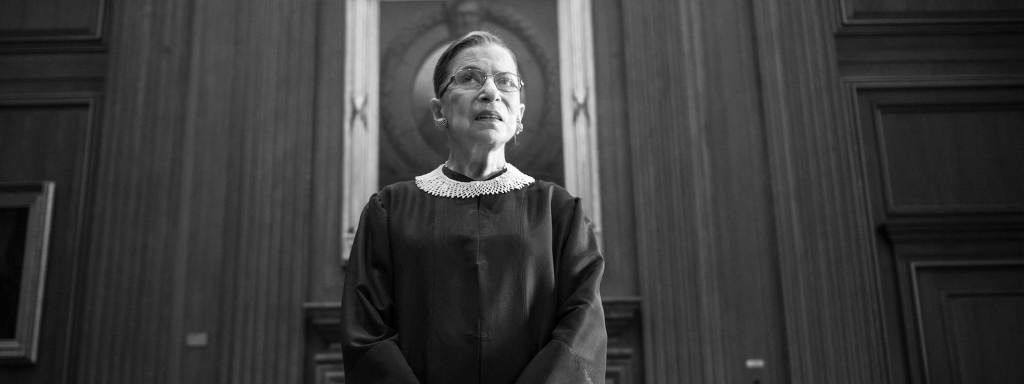
I had long admired Justice Ginsburg, but my first real interaction with her was this past February—so long ago, it seems—when she helped present my friend Aggie Gund with the Justice Ruth Bader Ginsburg Woman of Leadership Award.
That evening, her notorious passions were on display: Her love of the law and of the arts. Her testimony from the podium that night lifted our sights—and a surprise performance from a favorite mezzo-soprano lifted her spirits, in turn.
The bridge that spanned these twin loves—what made her such an exemplary lawyer, advocate, and judge—rested on the bedrock of empathy. She cared deeply, and was deeply concerned, about the rights of all people. She fought for women (and men, she might add) of every color and creed and circumstance: for the equal protection of the most vulnerable and marginalized in our society. She understood the heavy burden that persistent inequality placed on them most of all.
Justice Ginsburg once commented that she aspired “to make life a little better for people less fortunate.” She defined a meaningful existence as “[lived] not just for oneself, but for one’s community.” She embodied this commitment with every ounce and instant of her being.
Ancient Jewish teaching suggests that God chooses those who pass on Rosh Hashanah, the transition from the old year to the new, because they are the most righteous—because their service, their tzedakah, is the most sorely needed for the full duration. It is somehow fitting, then, that during this high holiday season—this period of reflection and repentance; reconciliation and renewal—we honor and grieve a giant of justice.
Justice Ginsburg’s walk on this earth ended at sundown, in the twilight of a difficult year for all humanity. But her extraordinary life’s journey affirms that when the sun rises, our march must continue, and our work, for equality, shall endure.
